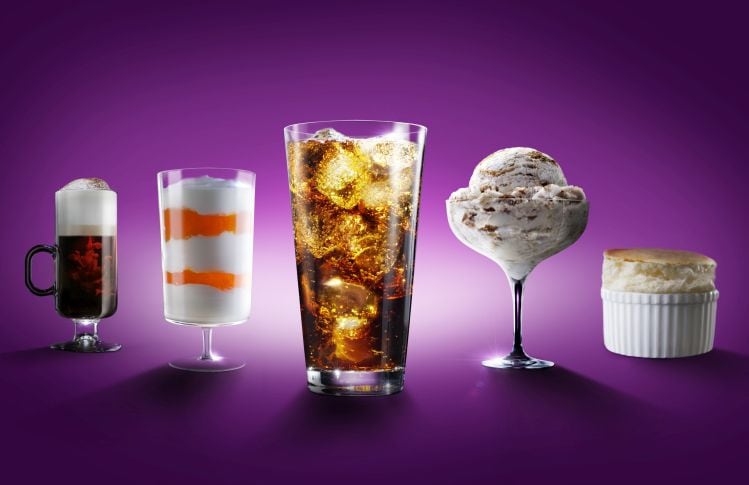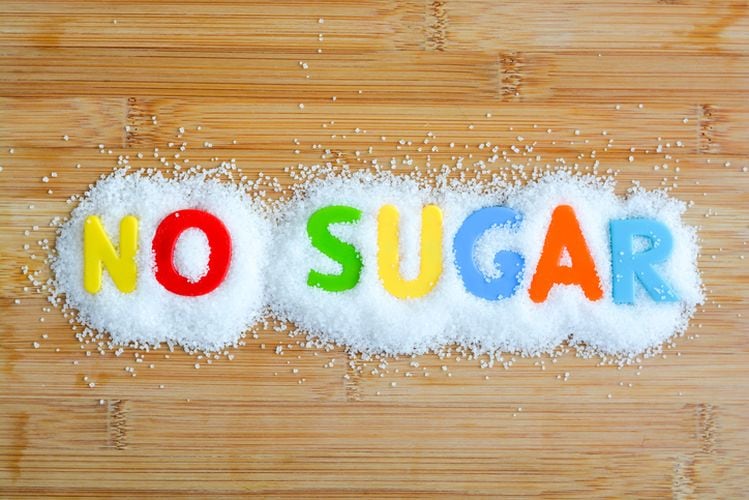“The first two things consumers look for on the Nutrition Facts panel now are calories and sugar,” Abigail Storms, VP, Sweetener Platform Innovation at Tate & Lyle, told FoodNavigator-USA.
“If you can have an impact on those two areas, you can make a massive difference in terms of how consumers will see a product, and allulose can now deliver against both [prior to FDA’s recent intervention, allulose counted towards grams of sugar on food labels, despite the fact it contributes virtually no calories and doesn’t raise blood sugar or insulin].”
While allulose is around three times as expensive as sucrose on a weight-for-weight basis, said Storms, prices are “highly competitive” vs rival bulk sweetener erythritol, which has become more popular in recent years, but doesn’t brown like sugar and can have a cooling effect on the tongue.
'I see very a clear incremental opportunity for allulose'
Consumer studies also show that allulose is significantly more appealing on an ingredient list than erythritol, she said.
“But I don’t just see it taking market share [from erythritol], I see very a clear incremental opportunity for allulose, particularly in bakery, confectionery, beverage and to a certain extent ice cream. I don’t see it taking from the diet or light segment; it’s more about making those full sugar type options healthier.
“Allulose is completely aligned with where we see consumers going, and therefore where our customers are going. We’ve developed products with customers that fit within their existing cost structures, so this is definitely not just for more niche brands and the consumers that can afford them.”
Allulose has the upfront sweetness of sucrose
An ultra-low-calorie ingredient [with 0.4cals/g vs 4cals/g for sucrose] - which is found naturally in jackfruit and raisins, but is being made in commercial quantities via the enzymatic conversion of fructose from corn – allulose is highly unusual in that it delivers the functional as well as the sensory qualities of sugar, added Jim Carr, VP applications and technical services at Tate & Lyle.
“In the world of formulation, this really is something that hasn’t come along for quite some time; it really is a game changer. I can’t think of another ingredient in the sweetening area that is as impactful, it’s something I’ve not seen in 30 years as a food scientist.
“I think the fact that it has 70% of the sweetness of sucrose is less important than the fact that it has a sugar like taste in terms of the time intensity profile, and the absence of aftertaste and linger. It has the upfront sweetness of sucrose, the quality of sweetness and the mouthfeel.”
The GMO factor
To make allulose, Tate & Lyle starts with corn, breaks it down into starch and fructose and then converts the fructose to allulose via an enzymatic conversion process using enzymes from a genetically engineered microbe. The enzymes – which serve as processing aids - are not in the final product, however.
So is it Non-GMO?
The term ‘Non-GMO’ is not defined under the new GMO labeling legislation. However, the new law makes clear that ingredients produced with enzymes or other processing aids from GM microbes do not trigger disclosure as ‘bioengineered’ foods if those microbes or enzymes do not function as ingredients in the final product.
Right now, it’s a moot point as Tate & Lyle is using GM corn as its starting material, which means it’s not promoting allulose as a Non-GMO ingredient, said Storms. However other sources of carbohydrate could be used such as sugarcane or Non GM corn in future, she said.
Is it natural?
As there is no legal definition of ‘natural’ on a food label (with the exception of natural flavors), there is no definitive answer to that question, said Storms.
But she added: “We do say that allulose is not an artificial sweetener, however, as it exists as a molecule in nature in fruits and figs and raisins and other things, although we don’t extract it from those sources as that would not be commercially viable.”
In other words, including allulose in a product stating ‘no artificial sweeteners’ is probably a safer bet than adding it to a product characterized as ‘all natural,’ although labeling choices ultimately rest with Tate & Lyle customers, she said.
“Very few companies now very overtly say ‘all natural’ on pack.”
Consumer perceptions
As for the name ‘allulose,’ awareness is still very low, said Storms, but consumer research has not thrown up any red flags when it comes to perception, she observed. “If you look at the conversations taking place online in terms of allulose right now, they are very positive.”
While some of this is driven by diabetics, who are always looking for sweeteners that don’t impact blood sugar or spike insulin, much of the recent interest has been driven by growing interest in the high fat, ultra-low-carb keto diet, she said.
“We’ve also done a lot of work with companies such as Quest Nutrition [a high-profile early adopter of allulose] on how we educate more nutrition-focused consumers about what allulose is and what the benefits are.”
Applications: 'Interest is really broad spectrum as it performs so like sugar'
As it has the texture and bulk of regular sugar, allulose can be used to reduce or replace it in everything from beverages, yogurt and ice cream to baked products, candies, salad dressings, gum, cereals and sugar substitutes, said Jim Carr, VP applications and technical services.
It also browns during baking, depresses the freezing point when making frozen products, disperses well in batters and dough without the need for additional water, and works well in combination with the most commonly used nutritive and non-nutritive sweeteners, including sucralose and stevia.
“Interest is really broad spectrum as it performs so like sugar. Some people are just doing a 1:1 replacement with sugar, and if they want to completely match the sweetness of sugar, they are making up the difference with stevia or monk fruit.”
In sensory studies, a flavored water sweetened with DOLCIA PRIMA Allulose was equally preferred to a corresponding erythritol-containing beverage, providing a balanced sweetness flavor profile and mouthfeel, he added.
Allulose can also be used as part of an ice-cream-specific carbohydrate stabilizer, enabling 30% calorie reduction and 50% sugar reduction while maintaining similar eating qualities and shape retention.
FDA: ‘Allulose is different from other sugars
In draft guidance issued last month, Susan Mayne, Ph.D., director of FDA’s Center for Food Safety and Applied Nutrition, said the agency had taken on board the points expressed via citizen's petitions, and decided to act:
“The latest data suggests that allulose is different from other sugars in that it is not metabolized by the human body in the same way as table sugar. It has fewer calories, produces only negligible increases in blood glucose or insulin levels, and does not promote dental decay.
“As such, we’ve issued guidance stating that we intend to exercise enforcement discretion to allow allulose to be excluded from the total and added sugars declarations on the Nutrition Facts and Supplement Facts labels when allulose is used as an ingredient [however, allulose must be included in the amount of 'total carbohydrate' declared on the label]."
Dr Mayne added: “Allulose will still count towards the caloric value of the food on the label – but the guidance document issued today states our intent to exercise enforcement discretion to allow the use of a revised, lower calorie count [instead of 4cal/g as is standard with sugars, this will be revised down to 0.4cals/g].”
Manufacturing allulose: Tate & Lyle – which has received a no objections letters from the FDA over its GRAS determination for allulose - manufactures the rare sugar in-house in Tennessee using an enzymatic conversation process that converts fructose (from corn) into allulose. It supplies the product in liquid syrup and crystalline form under the Dolcia Prima brand.
Two other companies have also received no objections letters from the FDA over their GRAS determinations for allulose: Japanese firm Matsutani (which has partnered with Ingredion to sell allulose under the Astraea brand produced at a plant in Mexico it says will come online this year); and Korean firm CJ Cheiljedang (which has partnered with California-based Anderson Global Group to sell allulose under the AllSweet brand).



